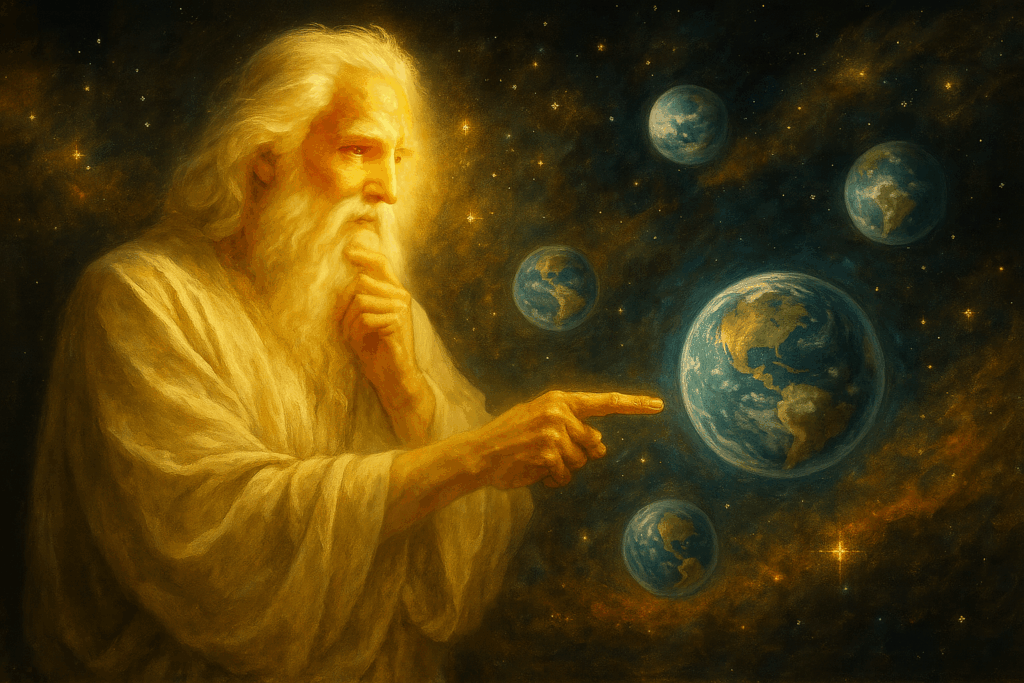A friend of mine has pressed me to respond to William Lane Craig’s defense of Molinism, so here is a small contribution. Recently, I found an occasion to do so. Craig’s X.com team posted this video, a snippet of a longer interview; click and watch it, it’s only 94 seconds. Craig is being provocative, and in fact, the title added to the snippet (“If God knows everything—can he still learn?”) is somewhat misleading about his views. Still, I am taking the bait, as this strikes me as a good jumping-off point for the debate about divine foreknowledge, free will, and future contingents. (I did take up this topic last May, but with almost no attention to Molinism.) Let’s review how the debate typically proceeds when Craig’s Molinism is deployed to reconcile divine foreknowledge with human freedom, concluding by evaluating Craig’s Molinist proposal. I am saving my response to Craig until the end.

In the snippet, Craig seems to argue that God can learn something new, because God is in time, and propositions can become true. Thus, he comes to know them when they become true. As part of the argument, he observes that knowledge of propositions is time-indexed; proposition p might be true at time t but false at t+1. “But,” you say, “obviously, God knows all true time-indexed propositions, for all t’s; and he always knows them. Otherwise, he is not omniscient!”
How would Craig respond? By denying that there are at present any facts about the future, if they depend on our free choices (“future contingent facts”). This follows, for Craig, from the A-theory of time, which holds that the future is not yet real and therefore not determined. So, God would not know which future fact will be true for the simple reason that such “future facts” do not exist at all (right now). It’s as if future reality had not been settled yet, and God is waiting for it to be.
But, you might say, this hardly solves the problem, as the reply is straightforward: “If God knew that Peter would (freely) deny Jesus thrice, then God’s knowledge, on Craig’s view, must be of a present fact—otherwise, there is nothing to know, as there is no fact. But, on Craig’s view, it is not a present fact, ergo, God does not know it. But, one might say, this makes God ignorant of something, and this is contrary to Scripture, so Craig’s view is (say it in your best Mona Lisa Vito voice) wrong.”
It is at this point that Craig deploys his key contribution to the debate: his version of Molinism. According to this view, God may know all possible worlds, including what all free agents would do in each possible situation; and he also knows which one is the best. He chooses that world. Yet, within that world, individuals enjoy free will. They are not determined by God to make the choices they make. So, it is possible for God to know future contingent facts—but such knowledge is not grounded in anything in the present, actual world. An elegant solution. To illustrate with our example: God can know that Peter will freely deny Jesus thrice, but his present knowledge is not grounded in any future contingent fact (since, again, such “future facts” don’t exist yet). His knowledge is based on what Peter would do in a given situation, which happens to be in the possible world that God selects.
This brings us to my own response to Craig. He wants to have his cake and eat it too—to say God has knowledge of the future, but the future is not determined. I say that Craig has merely described the process whereby God does determine the future. God considers the possibilities and selects the best? Very well. Even on the assumption that future contingent facts do not now exist (an assumption that rests on the A-theory of time), God knows at present which world he will choose. Thus, it is a present fact, namely, about God’s own intentions, that determines how the facts will unfold; God’s knowledge of future facts is based on that intention.
Nevertheless, I actually agree with Craig that, within the causal matrix that God has brought about and sustains, the choices we make are free. (See this defense of compatibilist free will.) I just think our freedom has nothing to do with the A-theory of time. I speculate that Craig might respond to me by saying that God’s intentions do not determine future facts. But I think ‘determine’ is a fair word, because ex hypothesi God has considered all possible worlds, which involve many different sets of facts and outcomes; he has selected, or settled upon, our present world; and ‘determine’ is a fine synonym of ‘select’ and ‘settle upon’.
Now, it is true that God does not determine each individual decision that we make, on Craig’s view. God determines the whole. Yet that is all that determinists ordinarily ask. Craig would likely insist that God’s selection of an entire possible world does not causally necessitate each choice within it. That is true. But if the entire causal structure is chosen and sustained by God, then in any ordinary sense, the future is determined by that choice.
For a broader treatment of freedom and divine sovereignty, see this essay from last May.
Leave a Reply to SteveFunck Cancel reply